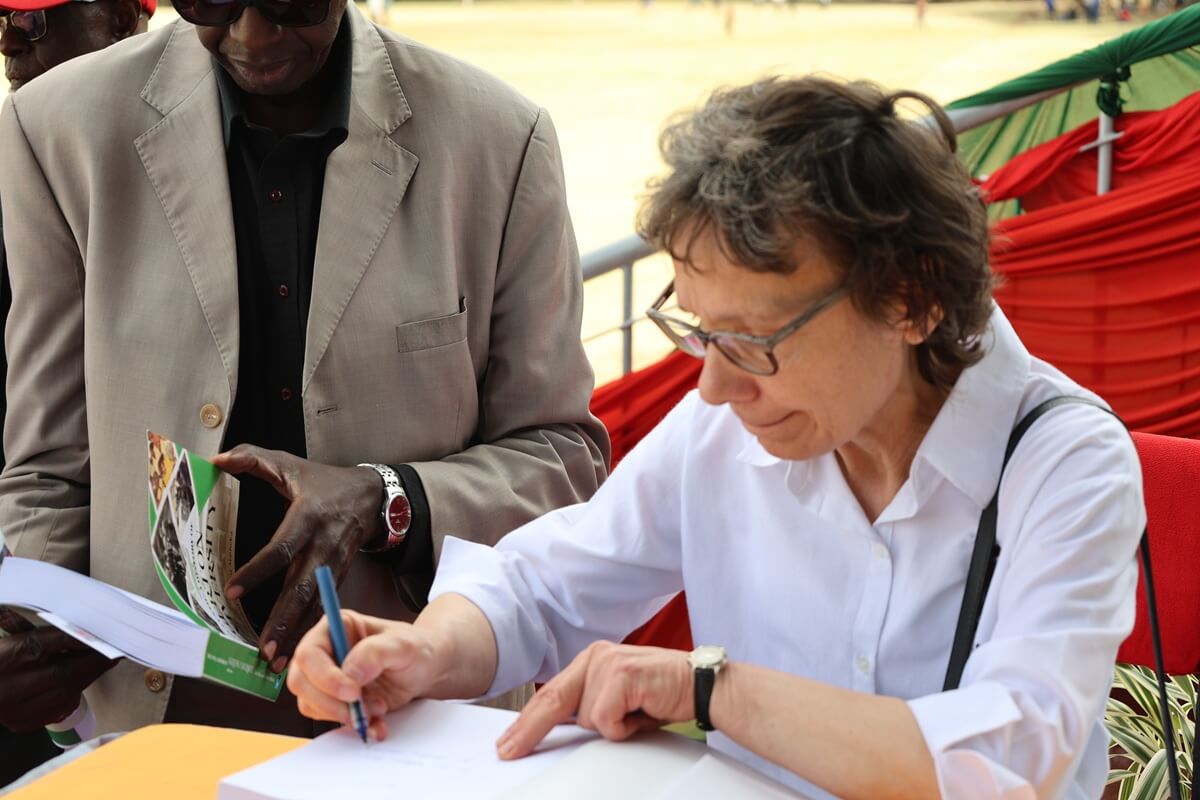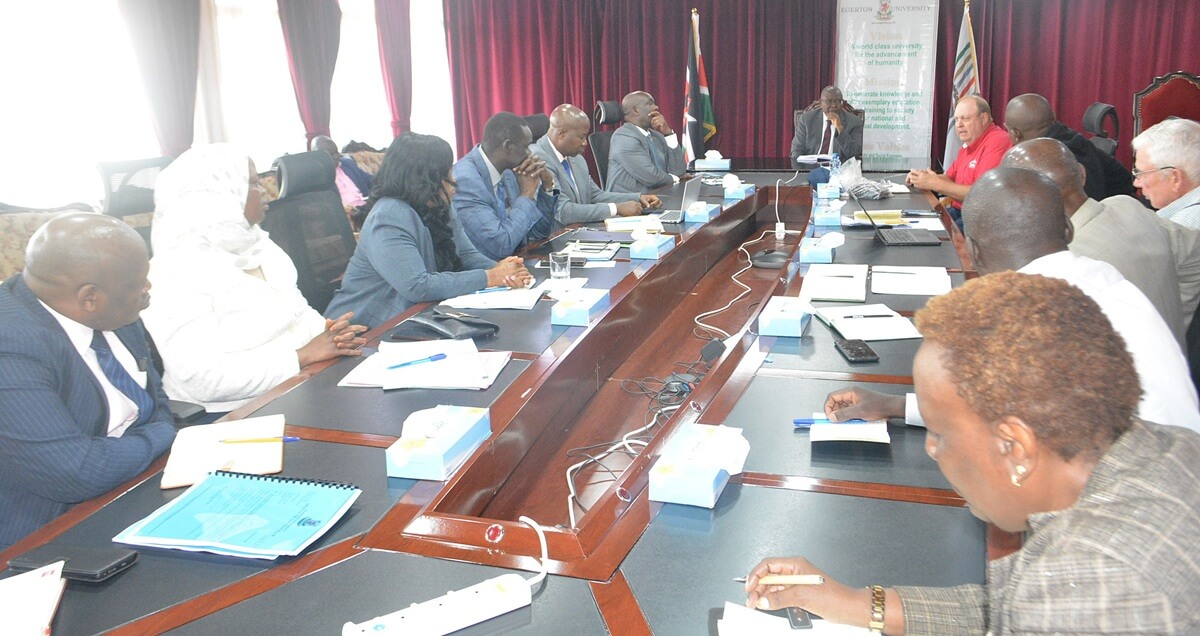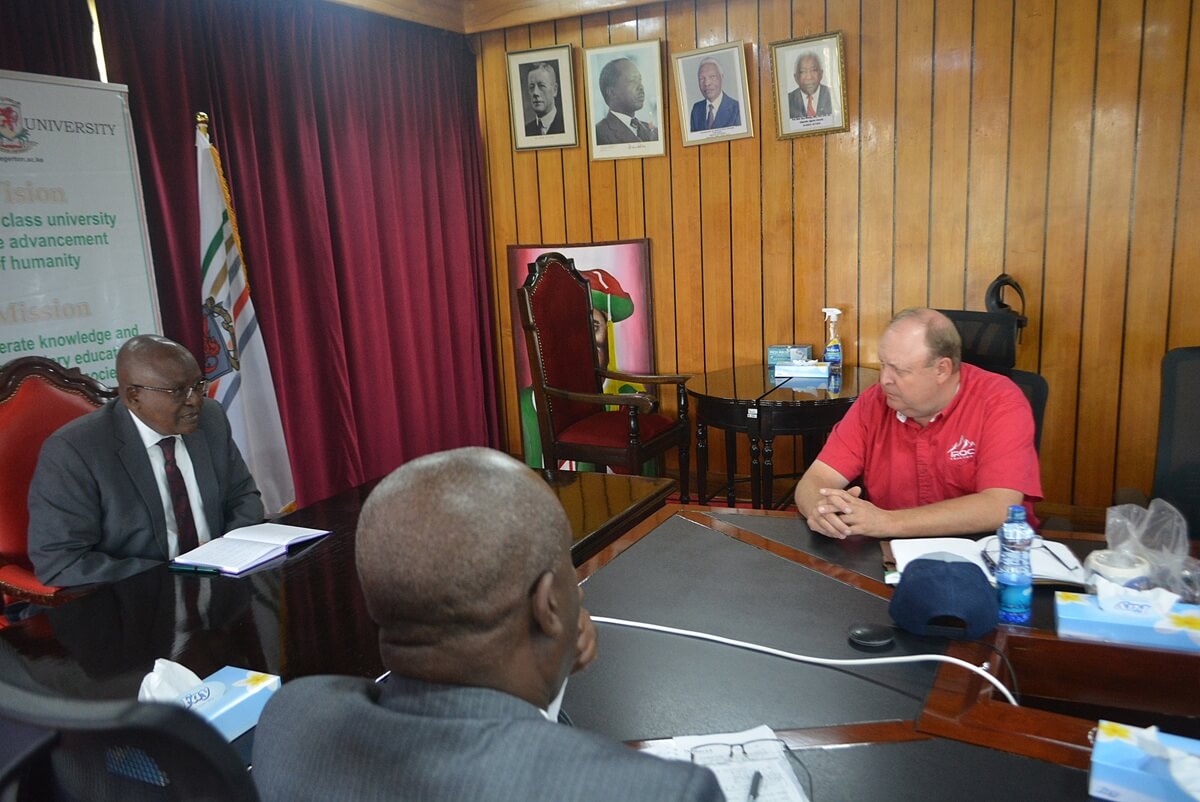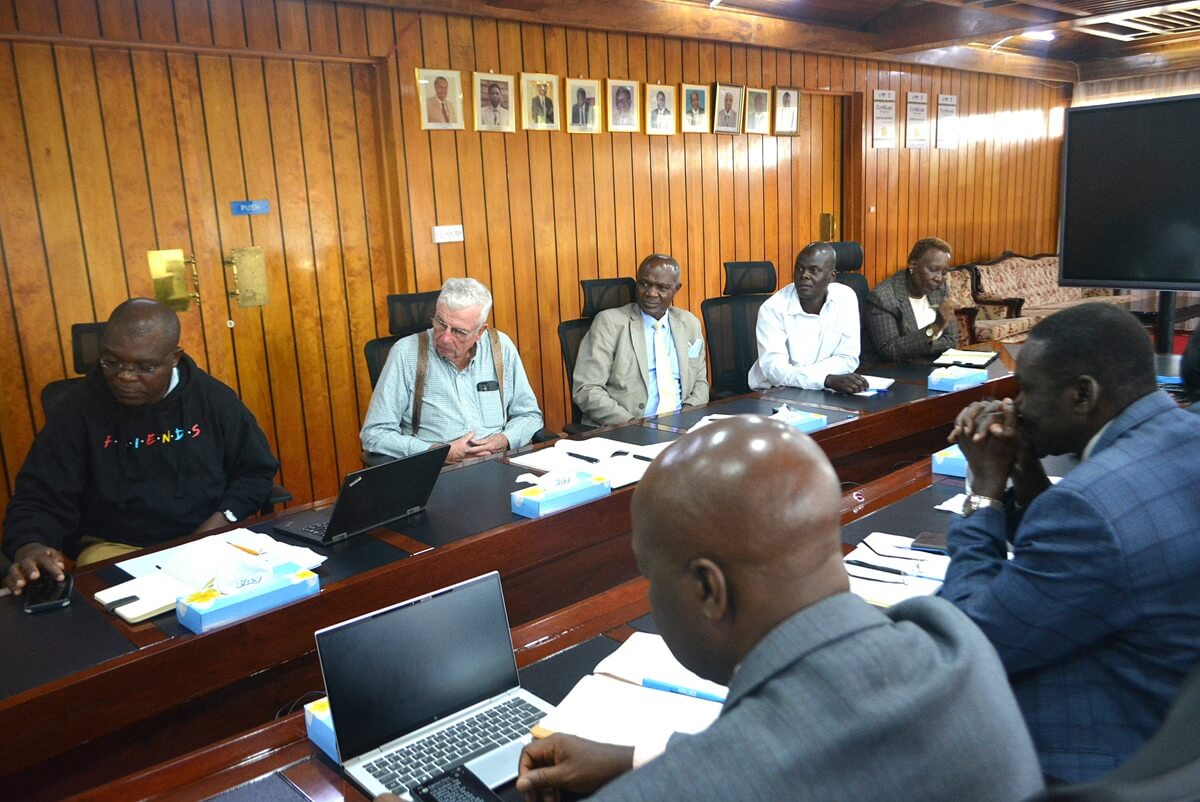By Musa Kurian
In a strategic stakeholder engagement meeting held at Egerton University, Vice Chancellor Prof. Isaac Kibwage hosted a delegation from the Salaries and Remuneration Commission (SRC) led by Commissioner Abdiwahab A. Abdi, accompanied by James Sietenei (Legal Officer) and Wesley Rono (PORME). The meeting underscored the expanding role of SRC in strengthening institutional governance, improving wage management, and ensuring transparency and accountability across public universities.
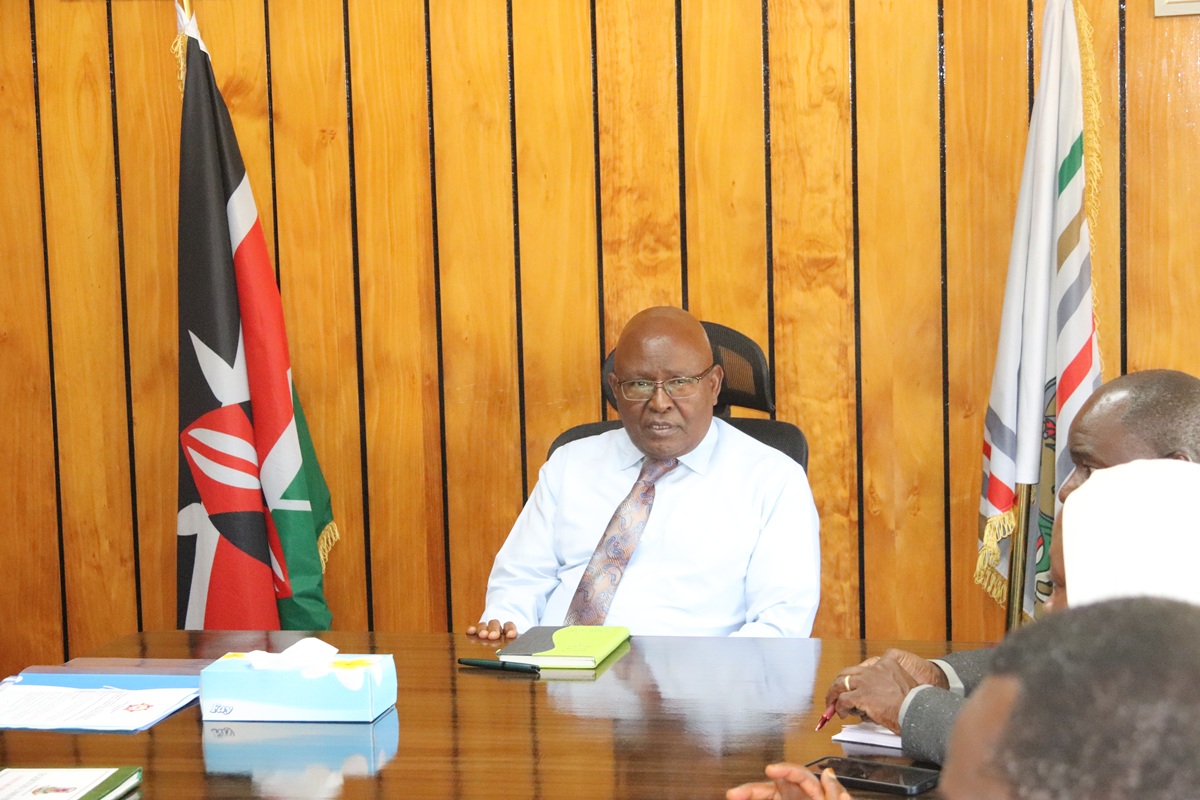
Commissioner Abdiwahab welcomed Egerton University into deeper collaboration with SRC, noting that stakeholder engagement remains a core component of the Commission’s mandate. He emphasized that the discussions were not only meant to address Egerton’s concerns but to benefit all universities across the country. SRC seeks to strengthen dialogue with institutions to identify salient issues, pain points, and systemic challenges that impact sustainability and human resource productivity.
During the meeting, reference was made to the recent BOMAS resolutions of the Salaries and Remuneration Commission, where universities were directed to enhance accuracy and verification of staff academic credentials. Institutions are expected to capture and authenticate staff data comprehensively to curb cases of unverifiable qualifications and improve integrity in the higher education sector.

Another central discussion point was the need for universities to align their wage bill to the 35% capping relative to internally generated revenue. SRC reiterated that compliance with wage bill thresholds is essential for institutional stability and long-term financial health. Additionally, universities are required to migrate to the BRIS system for IPPP payroll processing and subsequently submit verified data to the Ministry for harmonization and monitoring.
Prof. Kibwage, while appreciating SRC’s continued support, briefed the Commission on the financial difficulties the University is facing. He highlighted that Egerton still owes staff deferred pay, which continues to reflect on payslips. The VC expressed concern that if the appropriated funds to universities are not disbursed on time, salary payments may become strained. However, he reassured the Commission that despite the difficulties, the University is committed to stability and resilience.
“Despite this being a hard time to be a Vice-Chancellor in a public university, this is our country and we have to make it stable. We must make difficult decisions to make it work,” Prof. Kibwage stated.
He noted that Egerton University staff numbers had reduced significantly from 1,905 to the current 1,270, partly due to restructuring and outsourcing of services such as security and cleaning. While outsourcing reduced direct staff numbers, associated costs remain. The University currently has almost 900 academic staff and about 500 administrative staff, though growing student numbers may necessitate strengthening staffing levels.
The SRC team also inquired about the correlation between the number of academic staff and the number of graduating students, particularly in relation to supervision and teaching quality. Prof. Kibwage explained that the closure of the defunct Egerton University Nairobi Campus was influenced by financial constraints and policy shifts. Students affected by the closure are being supported to complete their studies.
The meeting reinforced the importance of stakeholder engagement, continuous monitoring and evaluation, and adherence to SRC guidelines as pathways to institutional sustainability and improved service delivery in Kenya’s higher education sector.1





